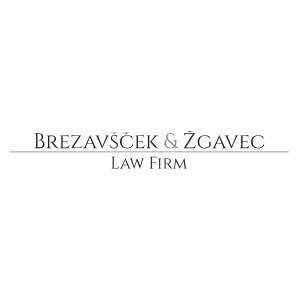Best Sanctions & Export Controls Lawyers in Ljubljana
Share your needs with us, get contacted by law firms.
Free. Takes 2 min.
List of the best lawyers in Ljubljana, Slovenia
About Sanctions & Export Controls Law in Ljubljana, Slovenia
Sanctions and export controls refer to the legal frameworks that regulate the movement of goods, technologies, and financial transactions across international borders, especially when dealing with countries, entities, or individuals subject to special restrictions. In Ljubljana, Slovenia, these laws are primarily shaped by the country's membership in the European Union, which aligns Slovenia with EU-wide sanctions and export control regimes. Additionally, Slovenia adheres to its own legislative measures, as well as international commitments under the United Nations and other multilateral agreements. Compliance is crucial for businesses and individuals involved in international trade, as violations can result in severe legal and financial consequences.
Why You May Need a Lawyer
Sanctions and export controls law is complex, frequently changing, and often involves multiple jurisdictions. Common scenarios where you might require legal assistance include:
- Exporting goods, software, or technologies from Slovenia to other countries
- Participating in transactions involving entities or countries subject to EU, UN, or Slovenian sanctions
- Uncertainty about the classification of items or whether a license is required
- Receiving inquiries or investigations from Slovenian or EU authorities
- Developing internal compliance programs for your business
- Responding to potential or actual violations of sanctions or export controls
- Assisting in voluntary disclosures of past non-compliance
Legal professionals can offer vital guidance to ensure compliance with the applicable regulations, help mitigate potential risks, and represent your interests in dealings with regulators.
Local Laws Overview
In Ljubljana, Slovenia, sanctions and export controls are governed by a combination of domestic and international legal sources. Key points include:
- Slovenia applies European Union sanctions, which can target specific countries, individuals, or entities due to foreign policy or security considerations.
- The country implements the EU Dual-Use Regulation, managing the export of goods, software, and technologies with both civilian and military applications.
- UN sanctions adopted by the Security Council are also binding on Slovenia as a member state.
- National enforcement is handled primarily by the Slovenian Ministry of Economic Development and Technology and other oversight agencies.
- Customs authorities play a vital role in monitoring goods flow and ensuring compliance at borders.
- Exporters and service providers must conduct due diligence, screen clients and transactions, and often require licenses or prior authorization for controlled items.
- Violations of sanctions or export controls can lead to administrative or criminal penalties, including fines or imprisonment.
Staying updated with regulations is essential, as sanctions regimes and control lists can change rapidly in response to global events.
Frequently Asked Questions
What are export controls?
Export controls are legal restrictions on the transfer of certain goods, technologies, software, and services to other countries, designed to protect national security and comply with international agreements.
What is the difference between sanctions and export controls?
Sanctions are measures that restrict trade or financial dealings with certain countries, entities, or individuals, while export controls regulate the export of specific goods, technology, or services regardless of destination.
Who is responsible for enforcing sanctions and export controls in Slovenia?
The Ministry of Economic Development and Technology, in coordination with the customs authorities and other government agencies, enforces these regulations in Slovenia.
Do Slovenia's sanctions differ from the EU's sanctions?
Slovenia primarily implements EU sanctions. Any national-specific measures are rare and usually in alignment with EU regulations and international obligations.
Do I need a license to export dual-use items from Slovenia?
Yes, exporting dual-use items from Slovenia generally requires a license, particularly if the destination is outside the EU or involves sensitive end-users.
How can I check if my transaction involves a sanctioned party?
You should screen all parties involved in your transactions against the EU, UN, and Slovenian sanctions lists. Legal counsel can assist with thorough due diligence.
What are the penalties for violating sanctions or export controls?
Penalties can include administrative fines, confiscation of goods, suspension of business activities, and in severe cases, criminal charges with potential imprisonment.
How often do sanctions and export controls change?
Sanctions and export controls can change frequently, often in response to international incidents or policy shifts. Regular reviews of regulations and updates are essential for compliance.
Can individuals as well as companies be held liable for violations?
Yes, both individuals and legal entities can be held responsible for violations of sanctions or export control laws.
What should I do if I discover a past violation in my business?
It is advisable to seek legal counsel immediately, consider voluntary disclosure to the authorities, and take steps to mitigate harm and improve compliance measures.
Additional Resources
If you are seeking more information or need to consult with relevant authorities, consider reaching out to:
- Ministry of Economic Development and Technology of the Republic of Slovenia
- Slovenian Customs Administration
- European Union Sanctions Map and information portals
- United Nations Sanctions Committees
- Chamber of Commerce and Industry of Slovenia for compliance training and seminars
- Reputable legal and compliance consultants specializing in international trade law
Next Steps
If you believe you may require legal assistance with sanctions and export controls in Ljubljana, Slovenia, consider the following steps:
- Gather relevant information about your business operations, products, transactions, and any areas of concern.
- Contact a lawyer or legal advisor with experience in sanctions and export controls. Look for practitioners who are familiar with both Slovenian regulations and EU frameworks.
- Be prepared to share documents, contracts, and correspondence related to the issue.
- Stay informed of recent developments in sanctions and export control regimes affecting your business or activities.
- Implement robust compliance programs, employee training, and due diligence procedures to minimize future risks.
Professional legal counsel will be able to assess your situation, advise on the best course of action, assist with regulatory filings, and represent you before Slovenian authorities if necessary.
Lawzana helps you find the best lawyers and law firms in Ljubljana through a curated and pre-screened list of qualified legal professionals. Our platform offers rankings and detailed profiles of attorneys and law firms, allowing you to compare based on practice areas, including Sanctions & Export Controls, experience, and client feedback.
Each profile includes a description of the firm's areas of practice, client reviews, team members and partners, year of establishment, spoken languages, office locations, contact information, social media presence, and any published articles or resources. Most firms on our platform speak English and are experienced in both local and international legal matters.
Get a quote from top-rated law firms in Ljubljana, Slovenia — quickly, securely, and without unnecessary hassle.
Disclaimer:
The information provided on this page is for general informational purposes only and does not constitute legal advice. While we strive to ensure the accuracy and relevance of the content, legal information may change over time, and interpretations of the law can vary. You should always consult with a qualified legal professional for advice specific to your situation.
We disclaim all liability for actions taken or not taken based on the content of this page. If you believe any information is incorrect or outdated, please contact us, and we will review and update it where appropriate.

















